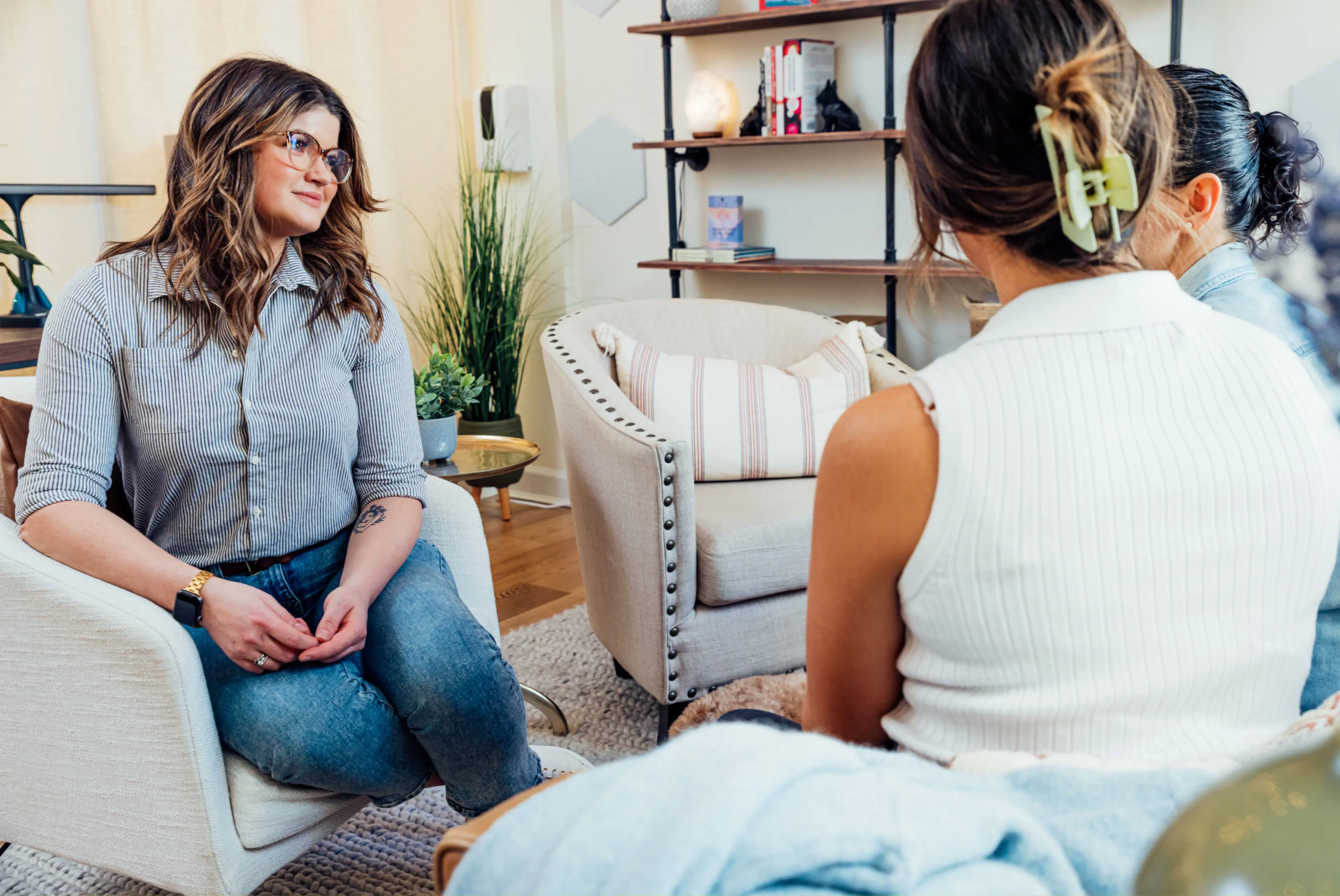24/7 Helpline:
(866) 899-221924/7 Helpline:
(866) 899-2219
Learn more about Opioid Rehab centers in Waynoka

Other Insurance Options

Sutter

BHS | Behavioral Health Systems

Health Net

WellPoint

UMR

Private insurance

Cigna

Multiplan

Choice Care Network

Kaiser Permanente

Premera

Sliding scale payment assistance
Beacon

Providence

Aetna

MHNNet Behavioral Health

Highmark

Medical Mutual of Ohio

Excellus

Oxford

Northwest Treatment Center
Northwest Treatment Center is a drug and alcohol addiction treatment center in Waynoka, OK for women...


Mission Treatment Centers
Mission Treatment Centers is a methadone clinic located in Tulsa, Oklahoma. They provide addiction t...

Tulsa Women and Children’s Center
Tulsa Women and Children's Center is located in Tulsa, Oklahoma. Tulsa Women and Children's Center p...

Laureate Psychiatric Clinic and Hospital
Laureate Psychiatric Clinic and Hospital is a behavioral health treatment center located in Tulsa, O...

Calm Center
Calm Center is a private rehab located in Tulsa, Oklahoma. Calm Center specializes in the treatment ...

12 and 12
12 & 12, located in Tulsa, Oklahoma, is a comprehensive community drug rehab center for men and wome...

Family and Children’s Services – Osage Hills
Family and Children’s Services – Osage Hills is a non-profit rehab located in Tulsa, Oklahoma. Famil...

Keetoowah Cherokee Treatment Services
Keetoowah Cherokee Treatment Services is located in Tulsa, Oklahoma. Keetoowah Cherokee Treatment Se...

Parkside Psychiatric Hospital – Trenton
Parkside Psychiatric Hospital – Trenton is a drug and alcohol rehab and psychiatric hospital in Tuls...

Human Skills and Resources
Human Skills and Resources is a private rehab located in Tulsa, Oklahoma. Human Skills and Resources...

Palmer
Palmer Adolescent Treatment Services is located in Tulsa, Oklahoma. Palmer Adolescent Treatment Serv...

Resonance Center for Women
Resonance Center for Women is a private, correctional facility located in Tulsa, OK. Resonance Cente...

Counseling and Recovery Services
Counseling and Recovery Services is a private rehab located in Tulsa, Oklahoma. Counseling and Recov...

Human Skills and Resources
Human Skills and Resources is a private rehab located in Sapulpa, Oklahoma. Human Skills and Resourc...

Parkside Psychiatric Hospital – East 12th Street
Parkside Psychiatric Hospital – East 12th Street is a private rehab located in Tulsa, Oklahoma. Park...

HOW Foundation
The HOW Foundation is a no-cost, residential recovery program for men suffering from alcohol or drug...

Therapyworks
Therapyworks is a private rehab located in Tulsa, Oklahoma. Therapyworks specializes in the treatmen...

Family & Children’s Services
Family & Children's Services heals hurting and abused children, strengthens families and provides an...

Tulsa Center for Behavioral Health
Tulsa Center for Behavioral Health, located in Tulsa, Oklahoma, provides behavioral health services ...

YouthCare of Oklahoma
YouthCare of Oklahoma is an outpatient clinic that provides mental health and substance use treatmen...

H.o.w. Foundation Of Tulsa
H.o.w. Foundation Of Tulsa is a public rehab located in Tulsa, Oklahoma. H.o.w. Foundation Of Tulsa ...




























































































































Green Country Adult & Teen Challenge
Green Country Adult & Teen Challenge is a non-profit rehab located in Sapulpa, Oklahoma. Green Count...

Creoks Mental Health Services
Creoks Mental Health Services is a private rehab located in Tulsa, Oklahoma. Creoks Mental Health Se...

Family and Children’s Services – Sarah and John Graves Center
Family and Children’s Services – Sarah and John Graves Center is a private rehab located in Tulsa, O...

Salvation Army – Family and Children’s Services
Salvation Army – Family and Children’s Services is a non-profit rehab located in Tulsa, Oklahoma. Sa...

North Tulsa Counseling Services
North Tulsa Counseling Services is a private rehab located in Tulsa, Oklahoma. North Tulsa Counselin...

Family and Children’s Services – East Office
Family and Children’s Services – East Office is a private rehab located in Tulsa, Oklahoma. Family a...

Parkside Psychiatric Hospital – East 13th Street
Parkside Psychiatric Hospital – East 13th Street is a private rehab located in Tulsa, Oklahoma. Park...

Rehab Works
Rehab Works is a private rehab located in Tulsa, Oklahoma. Rehab Works specializes in the treatment ...

Unanimity Club
Unanimity Club is a private rehab located in Tulsa, Oklahoma. Unanimity Club specializes in the trea...

Bearden Stan
Bearden Stan is a private rehab located in Tulsa, Oklahoma. Bearden Stan specializes in the treatmen...

Gadzoom Consulting
Gadzoom Consulting is a private rehab located in Tulsa, Oklahoma. Gadzoom Consulting specializes in ...

Improving Lives Counseling Services
We provide behavioral health and mental health counseling services, including individual therapy, fa...

Oxford House Stride
Oxford House Stride is a non-profit rehab located in Tulsa, Oklahoma. Oxford House Stride specialize...




















































